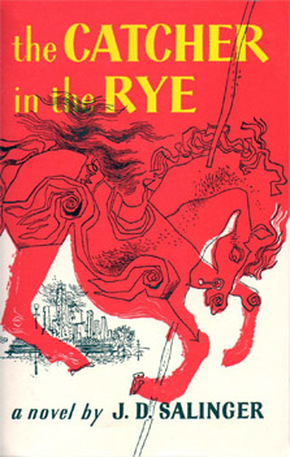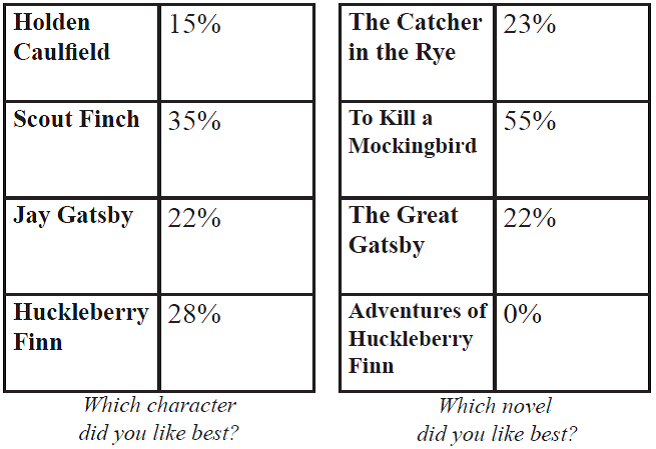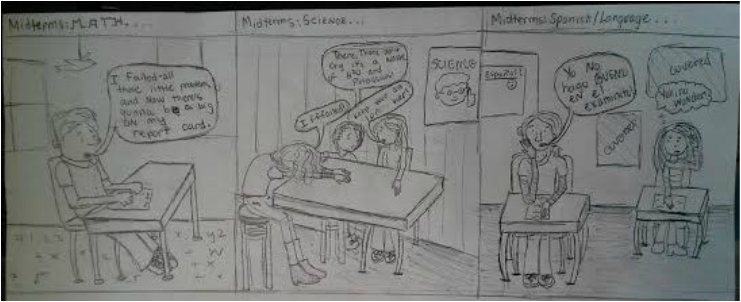 By Margaret Zheng Reporter We are shaped by all aspects of time: past, present, and future. We change through our recollections, through our perceptions of ourselves, through our yearnings towards places unknown. We mold ourselves in the moment, mind and brain together; and tomorrow, we are someone new. Who are we? We reflect our surroundings, yes, and the culture that raised us, but more so do we reflect our choices. Neurons rewire with every small step forwards, backwards, towards anywhere; lives transform by every leap. And when we go farther, we become stronger. I think North could become stronger if we each strive farther. It often disappoints me how much academic effort is directed towards a grade or to getting through a class, rather than towards learning. We all have trying days, and we all have subjects in which we have difficulty engaging. For me, they have been economics and politics. But we also have opportunities to shape our learning ourselves, such as during a discussion or while completing a project. For instance, Señora Macrone, my Spanish teacher, enjoys having students play the role of teachers by writing quizzes for their peers. I praise her effort to help students learn in novel ways, an excellent strategy for brain-training. I do find, however, that the students’ work in such activities is most revealing of their motivation. “You must ___________ in the morning.” Brush your teeth? Put on your clothes? Eat breakfast? Dance the Hokey-Pokey? I do not believe students must write perfect quizzes, but they could make them more interesting. An interesting quiz or presentation not only better engages the receivers, but also is more fun for the creator. Additionally, by forcing myself to participate in social studies class discussions about the development of capitalism in the U.S., I have expanded my horizon in the social sciences, and besides my performing better in class, I think my choice to challenge myself has changed me for the better. I speak not just about academic classes. Some people love gym and will play almost any sport. Some people seem to find it a pointless class and participate just at the margin of a participation grade. And I? I have been told I will never be good at most sports, but I like to try. I appreciate when others try as well. No class needs to be pointless if one chooses a challenge. If it’s too easy, teach yourself beyond the material or create something new with it. If it’s too boring, make it interesting – find a “hook” into the subject, or investigate why you have such antagonism towards it in the first place. If it’s too hard, accept the challenge and just do it, to borrow from Nike. The goal of self-improvement and the pursuit of excellence are never-ending. And when it comes to choosing our future paths, perhaps through program planning or forging post-secondary endeavors, the question becomes not if we want a challenge, but what kind we seek. The most heavily-weighted class is not necessarily most conducive to one’s learning style or aspirations. Electives need not be chosen to please colleges. Colleges – or college itself – need not be chosen to please parents, friends, or anyone besides your vision of your ideal. Like a tree, we are born to grow, and like bonsai, we are shaped as we please. There is not “the” challenge, only yours. Council Rock is a community of caring, learning, and support. It is also, inherently, a community of individuals. It is defined by those individuals who mold themselves every moment. Answer, then, each of you, by action: how will you shape yourself for your better?
0 Comments
 By Samantha Gougher Editor If you’ve ever taken a sophomore- year English class at Council Rock North, you’ve probably become acquainted with the famous fictional character Holden Caulfield. Regardless of your feelings towards the teenage narrator of J.D. Salinger’s The Catcher in the Rye, you’ve probably discussed his antics inside and outside of the classroom. As teenagers, we tend to either admire or despise Holden’s colorful dialogue and cringe- worthy narrative, and we’re surprisingly vocal about our perspectives. When I reflect on my sophomore year, I remember the conversation about Catcher being more active than with any other novel, and I even recall its content inspiring jokes and discussion outside of class. Holden, in a positive or a negative sense, elicited thought; he made us reflect on ourselves, our lives, and the experience of adolescence itself. In the same way that we perceive characters from popular franchises such as Star Wars and The Hunger Games, students always seem to have opinions about assigned English readings. Whether a class hates a book with a scarily unified passion (The Once and Future King) or adores it in a fond, understated manner (To Kill a Mockingbird), it’s amazing to see people forming thought beyond what’s on a 10- question comprehension quiz. It’s a common experience that we all share, whether we like it or not. Because this phenomenon interests me to a pretty dorky extent, I took a survey of students to find out how they feel about the more popular pieces assigned throughout their high school years. Unfortunately, I had to leave out Ethan Frome and Frankenstein since not all classes read them. The selected books span freshman to junior year, so if you haven’t been assigned them yet, this survey will either energize you or completely deflate your spirits. Sorry about the latter. Given a selection of four popular characters, 15 percent of students favored Holden Caulfield (myself included), 35 percent favored Scout Finch, 22 percent favored Jay Gatsby, and 28 percent favored Huckleberry Finn. Given a similar pool of four novels, 23 percent of students preferred The Catcher in the Rye (hello again!), 55 percent preferred To Kill a Mockingbird, 22 percent preferred The Great Gatsby, and zero percent preferred The Adventures of Huckleberry Finn. Clearly there’s a pattern, and we can draw some conclusions from the data. The love for To Kill a Mockingbird is shared by most (as it should be), while novels such as Catcher and Huck are a little more controversial. These reactions can be motivated by gut feeling, admiration or hatred for the characters, or memories associated with reading the books themselves. Although we definitely adored many of the assigned texts, there were a few novels and characters students tend to vehemently dislike. Some even overlap with the selections above, showing how differently things can be perceived by separate people. From another selection of four characters, 37 percent of students least liked Holden Caulfield, 13 percent least liked Tom Buchanan, 37 percent least liked Tom Sawyer, and 13 percent least liked Romeo Montague. Holden, as always, is an object of controversy; some love him, but some think he’s the absolute worst. I’m a Holden apologist and supporter, but I’ll admit that he’s not the most likable or charismatic person. I used to hate him too, until re- reading Catcher nearly a year later. I tried to determine which novels people least enjoyed, but the results were very scattered. Some people really disliked Cry, the Beloved Country, which according to junior Mary- Kate Durnan was “just too sad.” Some singled out Romeo and Juliet or The Merchant of Venice, due to the complexity of Shakespearean language. Some cited The Once and Future King based solely on its obnoxious length. And some, despite my efforts to dissuade them, really did not like The Catcher in the Rye. What a bunch of phonies, am I right? Despite our feelings about specific characters and novels, the students of Council Rock North bond over the assignments we’re given in English class. Whether we’re debating in a fishbowl, writing essays, complaining on the internet, or making jokes at characters’ expenses, we’re experiencing the magic of storytelling and fiction together. The resulting thought in each individual is just as valuable as the grade he or she receives. By Maithri Nimmagadda and Esther Kardos
Reporters For this school year, midterms are behind us, meaning at least one metaphorical weight has been lifted off our shoulders. However, with one big test behind us, another looms in the future as finals are soon to come. And with 25% of a marking period grade dependent on this one test, accounting for one eighth of our total grade, students are already dreading having to take it – perhaps with good reason. Midterms and final exams often present many problems for students both during and prior to the exams. There is, for one, the fact that these tests cause stress for every student taking them. This stress, as a result, may have health consequences, too, and these symptoms are even more prominent for teenagers, whose bodies are still growing. In addition to stress, the weight for these two main tests may be overwhelming. If a usually high-achieving student is having a bad day when she is taking these tests, then losing one, or even two, letter grades could be a possibility – thus undermining her other hard work from the rest of the marking period. Plus, at their cores, midterms and finals arguably are based less on ability to learn and comprehend as they are on ability to answer multiple-choice questions. Some students are naturally proficient at this skill, while others aren’t, meaning that the tests may put some at a disadvantage. Despite these arguments, there are several benefits to taking a midterm or a final exam. Such benefits include helping test takers review what they’ve learned in the first half of the year or at the end of the year and boosting the grades of individuals who do well on these tests. Also, final exams in particular signal that one is prepared to move on to the next course level and has mastered the previous content. Midterms, likewise, may signal to a teacher that some content should reviewed if many students show a lack of proficiency in any particular areas. For these reasons among others, the district has chosen to maintain finals and midterms as part of most courses. Thus, the midterms and final exams, the tests that determine 25% of our second or fourth marking period grade, have both their pros and cons. Therefore, each student can evaluate whether taking these tests is truly beneficial to him or her and perhaps remember that his or her work includes everything accomplished in each course this year. |
Archives
February 2022
Categories |


 RSS Feed
RSS Feed
